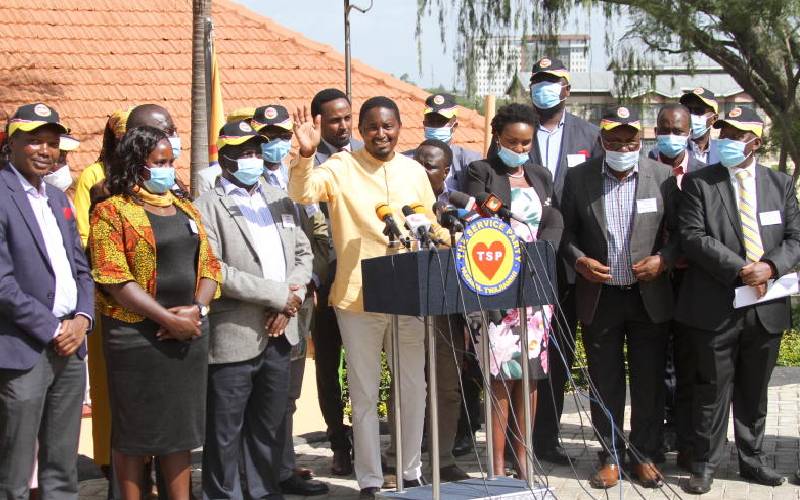×
The Standard e-Paper
Smart Minds Choose Us

The Service Party of Kenya (TSP) leader Mwangi Kiunjuri alongside party members addresses a press conference at the party headquarters in Upper Hill Nairobi. [David Njaaga, Standard]
In the 2013 and 2017 general elections, the phrase “six-piece pattern” gained popularity as Kenyans embraced the clarion call by big parties of the time to elect their nominees.